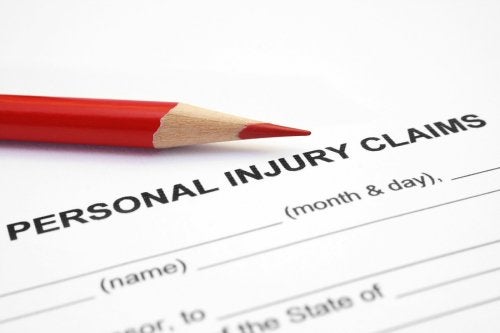-
Can a Parent File a Personal Injury Claim for a Child?
Parents of children who have been injured as a possible result of someone else’s negligent or reckless actions should consult a personal injury lawyer in Tracy or Manteca. A personal injury lawyer will review the case to decide if it is appropriate to pursue damages. Since the rules of statutes of limitations are different when applied to children, it is possible for the child to wait until the 18 th birthday before filing a lawsuit on his or her own behalf. However, a guardian ad litem can also file a lawsuit on behalf of a minor child prior to the 18 th birthday. Usually, the appointed guardian ad litem is the natural parent of the child.
Many lawsuits resolve with settlement arrangements. If the personal injury lawyer negotiates a settlement on behalf of the minor child, then the court must approve this settlement before it can be finalized. The injury lawyer will file the minor’s compromise petition with the court to seek a court order approving the settlement.

-
Understanding the Basics of Estate Taxes
One of the most important parts of estate planning involves setting up your estate in such a way that your beneficiaries are protected from taxes as much as possible. For sizable estates, estate taxes are a major concern that your estate planning attorney in Tracy and Manteca can help you prepare for.
The government charges estate tax when your beneficiaries inherit money above a pre-determined amount. This amount is adjusted frequently by the government. The government could take a substantial amount of your estate if estate tax applies to you. A lawyer can help you set up the distribution of your estate in a way that minimizes the tax burden for your beneficiaries and saves a significant amount of money.
-
When Is a Restaurant Liable for Your Slip and Fall Injury?
 Restaurants are prone to spills and chaotic conditions, which means they are also prone to hazards that cause people to slip and fall. When you’re hurt in a fall in a restaurant, how do you know if the restaurant is to blame? Personal injury lawyers in Tracy can evaluate your case and let you know where you stand. This information will also help.
Restaurants are prone to spills and chaotic conditions, which means they are also prone to hazards that cause people to slip and fall. When you’re hurt in a fall in a restaurant, how do you know if the restaurant is to blame? Personal injury lawyers in Tracy can evaluate your case and let you know where you stand. This information will also help.To prove that a restaurant is responsible for your slip and fall injury, your personal injury lawyer must demonstrate that the fall occurred because the restaurant was negligent in some way and that you did not do anything to contribute to the fall. For instance, your lawyer must show that there was a spill on the floor that the restaurant was negligent in not cleaning up and that you did not ignore any wet floor signs before slipping in the spill. When your injury lawyer successfully makes this case, then the restaurant may have to pay for your medical costs and compensate you for any pain and suffering that occurred because of your injury.
-
How Can Your Personal Injury Lawyer Prove Negligence?
 For legal purposes, negligence refers to a person’s actions or failure to act in accordance with a duty owed to another person. If you intend on having a personal injury lawyer file a claim on your behalf, it is not sufficient to simply state that the defendant acted negligently in some way. There are four elements of negligence for every personal injury claim. A personal injury lawyer building a case in Tracy or Livermore must demonstrate that each element is present.
For legal purposes, negligence refers to a person’s actions or failure to act in accordance with a duty owed to another person. If you intend on having a personal injury lawyer file a claim on your behalf, it is not sufficient to simply state that the defendant acted negligently in some way. There are four elements of negligence for every personal injury claim. A personal injury lawyer building a case in Tracy or Livermore must demonstrate that each element is present.Duty of Care
This first element is often the easiest to prove. The personal injury lawyer must demonstrate that the defendant owed a duty of care to the plaintiff. In auto accident cases, for example, this means that the defendant owed a duty of care to drive in a reasonably safe manner, such as by obeying traffic signals. In some cases; however, proving that a duty of care existed can become more complicated. For instance, in dog bite cases, a dog’s owner may not owe a duty of care to a trespasser on private property who is bitten by the dog.
Breach of Duty
The second element of a personal injury case involves proving that the defendant somehow breached the duty of care. In an auto accident case, this may be accomplished by using the police report to prove that the defendant ran a red light.
Causation of Injury
Thirdly, the injury lawyer must prove that the breach of duty of care directly led to the plaintiff’s injuries. For instance, if the defendant ran a red light and immediately struck the plaintiff’s car, then it’s usually clear that the plaintiff’s injuries were caused by the defendant’s actions. However, if the defendant ran a red light and did not strike the plaintiff’s car until he or she had traveled several miles, these two actions may not necessarily have a causal relationship.
Causation of Damages
Finally, personal injury lawyers must prove that the plaintiff has incurred losses as a result of the injuries. This is typically accomplished with medical bills. Future damages may also be calculated, such as the loss of future wages if the plaintiff’s injuries prevent him or her from working.
-
Should You Consider Setting Up a Trust?
A trust is a financial arrangement that a lawyer can set up for you. While trusts can be very useful for many people, not everyone needs one. Generally, it’s advisable to have an estate planning attorney set up a trust on your behalf if you have substantial assets or complicated financial situations. For guidance on whether a trust can benefit your family, watch this video and contact an estate planning attorney near Tracy or Livermore.
The expert in this video discusses some of the types of trusts available and explains why some people may want to have a lawyer establish them. For example, upon your passing, any assets managed within your trust will bypass the probate process. This can help ease the transition of your passing for your surviving loved ones. Additionally, trusts may confer certain tax benefits.
-
When Should You Consider Changing Your Will?
If you’ve visited an estate planning attorney to draft your last will and testament, you’re already taking a step in the right direction. However, wills are not a “one and done” solution. At certain points during your lifetime, you should revisit a lawyer in the Tracy or Manteca areas to update your will. If you’re ever unsure of whether it’s time to update or completely revise your will, a lawyer who handles estate planning matters can offer guidance.
When You Move
A move across town doesn’t necessarily necessitate an update to your will, unless of course, you’ve experienced other changes in your life circumstances. However, if you’re moving across state lines, you may need to consider talking to an estate planning lawyer. This is because some states are community property states, whereas others are common law property states. This difference refers to the way in which the law treats marital property.
When You Expand Your Family
You can use your last will and testament to designate beneficiaries for your treasured possessions , but families are subject to change. When you marry (or divorce), it’s time to update your will to reflect new beneficiary preferences. If you marry and acquire new stepchildren, you should be aware that these individuals may not necessarily inherit anything from you unless you specify their inheritances in your will. It’s also a wise decision to revise your will when you have a new baby or adopt a child. In these cases, designating the kids as your beneficiaries is just one of the reasons to update the will. You’ll also need to designate a legal guardian in the event that you pass away before these children become adults.
When You Acquire or Sell Major Assets
You may have left your artwork collection to your sister, but what happens if you decide to sell it or give it away instead? You may wish to update your will to leave your sister a different family heirloom instead. Similarly, if you acquire a major asset such as a boat, you may need to add a beneficiary to your will.
-
A Look at Common Personal Injury Cases
 If you’ve been injured as a result of someone else’s actions, you can consult a personal injury lawyer near Tracy or Manteca to assess whether you may have the basis for a claim. A personal injury lawyer may file an intentional or negligent tort on your behalf. An intentional tort is filed when the defendant is accused of acting intentionally to cause your injuries, whereas a negligent tort involves injuries that arise from negligent acts. Of the different types of claims a personal injury lawyer may file, negligent torts arising from car accidents are among the most common.
If you’ve been injured as a result of someone else’s actions, you can consult a personal injury lawyer near Tracy or Manteca to assess whether you may have the basis for a claim. A personal injury lawyer may file an intentional or negligent tort on your behalf. An intentional tort is filed when the defendant is accused of acting intentionally to cause your injuries, whereas a negligent tort involves injuries that arise from negligent acts. Of the different types of claims a personal injury lawyer may file, negligent torts arising from car accidents are among the most common.An accident attorney can also file a personal injury claim after a victim has been attacked by someone else’s dog. Slip and fall cases, which are referred to as premises liability cases, arise when an individual slips or trips on someone else’s property. In these cases, the lawyer must demonstrate that the property owner or manager knew or reasonably should have known that the hazardous condition existed, yet failed to fix the problem in a timely manner.
-
A Closer Look at Advance Directives
An advance directive does not deal with your finances, but it’s still an important component of estate planning. When it’s time to visit an estate planning attorney located in Tracy or Manteca, you can have him or her create your advance directive along with your last will and testament. This legal document informs your family members and healthcare providers of your healthcare preferences in the event that you are no longer capable of communicating these preferences.
In an advance directive, your attorney could explain that you prefer to accept or refuse life-extending medical care. Use this document to specify your preferences regarding tube feeding, artificial respiration, and dialysis. If your heart rate or breathing stops, medical providers will need to know if you want to be resuscitated. If not, this is often referred to as a DNR, or a do not resuscitate order. Along with your advance directive, consider establishing a durable power of attorney for healthcare. This is a legal document that designates a healthcare proxy, which is a person whom you entrust to make healthcare decisions on your behalf if you are no longer able to. Your healthcare proxy will follow any preferences specified in your advance directive.
-
What Is Proximate Cause in a Personal Injury Case?
 A personal injury case can involve complex issues, which is one reason why it’s advisable to choose a highly experienced personal injury lawyer with offices in Tracy or Livermore. Your personal injury lawyer must not only prove the actual cause of your injuries, but also the proximate cause or legal cause. Proximate cause is a key concept in holding a defendant liable for negligence . To better understand proximate cause, it may be easier for your personal injury lawyer to explain what proximate cause does not entail.
A personal injury case can involve complex issues, which is one reason why it’s advisable to choose a highly experienced personal injury lawyer with offices in Tracy or Livermore. Your personal injury lawyer must not only prove the actual cause of your injuries, but also the proximate cause or legal cause. Proximate cause is a key concept in holding a defendant liable for negligence . To better understand proximate cause, it may be easier for your personal injury lawyer to explain what proximate cause does not entail.For example, if you drive through an intersection and a car nearly hits you, you may be understandably upset. As you continue driving, your distressed emotional state may prompt you to hit a parked car and sustain injuries. In this instance, the negligent driver may have remotely influenced your accident, but his or her actions do not constitute a proximate cause. To prove that proximate cause does exist, your injury lawyer would have to demonstrate that the defendant could reasonably foresee that acting in a negligent manner could have caused your injuries.
-
What Are the Components of a Complete Estate Plan?
 Estate planning can be complicated, but delaying getting your affairs in order may lead to undesirable consequences. If you’ve experienced a change in life circumstances, such as the birth of a child, a marriage, or the death of a family member, it’s time to make an appointment with a will lawyer with offices in Tracy or Livermore. Your estate planning attorney will walk you through the process step-by-step.
Estate planning can be complicated, but delaying getting your affairs in order may lead to undesirable consequences. If you’ve experienced a change in life circumstances, such as the birth of a child, a marriage, or the death of a family member, it’s time to make an appointment with a will lawyer with offices in Tracy or Livermore. Your estate planning attorney will walk you through the process step-by-step.Will
Wills are a cornerstone of estate planning. A will serves several functions, including providing for the distribution of your property in accordance with your wishes. If you die intestate, which means without a last will and testament, then your property may be distributed in accordance with the laws of your state. Of course, it is not necessary to list every valuable item you own in your will. A simple will may leave all of a person’s possessions to his or her significant other. Or, you may designate most of your possessions to one person, with the exception of certain family heirlooms to be passed along to other individuals. You can also use your will to make charitable contributions and designate an executor. If you have minor children or you care for a permanently disabled individual, you can use your will to designate guardians .
Beneficiary Designations
You may have other beneficiaries in addition to those you name in your will. If you have a life insurance policy, you should check your designated beneficiaries and update this information if need be. You may also designate beneficiaries for your retirement plans.
Trust
You may choose to have your estate planning attorney establish a trust, which may provide tax advantages for your heirs. You can also use a trust to control the distribution of property after your death. For example, you may wish to leave assets to your minor children, but you may not necessarily want them to have access to the funds right away. You could structure your trust so that your children will receive a certain amount at specific intervals. A trust can help prevent financial irresponsibility among younger beneficiaries.
RECENT POSTS
categories
- Uncategorized
- Personal Injury
- Estate Planning
- customer reviews
- Financial Planning
- Work Injury
- Tracy Lawyer
- Attorney
- Dog Bites
- Auto Accident
- Slip and Fall
- Car Accident
- Living Trusts
- Trust Administration
- Living Will
- Wrongful Death
- Probate
- advanced health care directive
- About Us
- Russian linguist
- Infographic
- Wills and Trusts
- Will
- Car Crash
- Executor
- Whiplash Injuries
- Estate Taxes
- Slip and Fall Injury
- Auto Accident Claims
- Intestate Succession
- Disinheritance
- Trust Administrators
- Cycle Accident
- Accident
